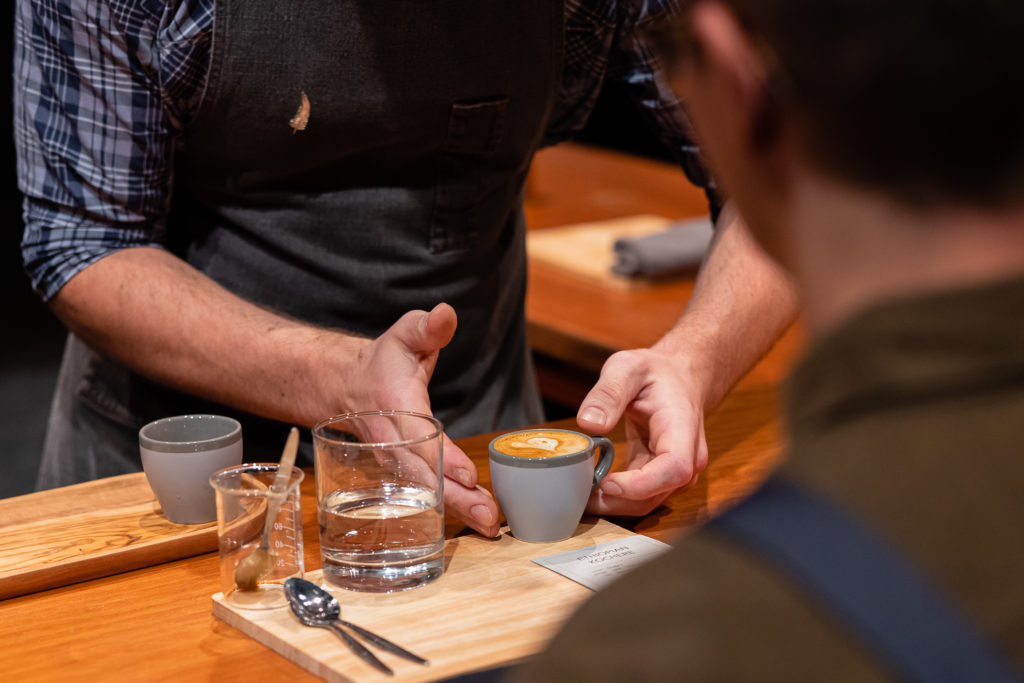August 2021
Are you paying too much for your cup of coffee? No, you’re probably not paying enough. When you take the time to consider what goes into your daily brew, you soon realize there’s a lot in that cup.
As an association built on coffee, we are often asked why different coffees are more expensive than others. We also get asked how much we should pay for that cup of coffee. Legalities rightly keep us from “setting the price” or setting the recipe for a flat white. We can explain what you’re paying for in that cup. And why, you could potentially be paying more.
Roz Cattell, president of the New Zealand Specialty Coffee Association (NZSCA), said that roasters and cafes across New Zealand are absorbing significant increases in costs, which means the true value of your coffee isn’t being represented in what you’re paying “Our members are taking one for the team of five million by trying to keep the price of a long black or flat white relatively low. But we need to appreciate what we’re putting into your cup of coffee, and there’s a lot in that cup.”
“Coffee is a deceivingly simple product – beans, water, and maybe some milk. However, add on the rising cost of freight, education on how to make the coffee, wages, equipment, power, rent, milk, the vessel you drink from, and beans themselves, and it starts to paint a different picture.“
New Zealanders drink around 2.2 kilograms of coffee each per year and we do have excellent coffee. It’s our daily affordable luxury. Looking at the journey of the coffee to your cup, the NZSCA can see the added value to every part of the link in the chain. And there’s a lot of people and systems in that chain.“The price of a cup of coffee should reflect the skills and experience that growers, roasters, and baristas add to take your coffee from a caffeine injection to a real experience. We owe it to coffee professionals to look at the value we place on their expertise.”
It can be hard to take a step back to appreciate the global supply chain of coffee and the things that can impact it. In New Zealand, we might notice a traffic jam of cargo ships waiting to be unloaded, costing more each day they wait at sea. But we don’t see the devastating impacts of weather events like droughts or frosts that have ruined countless crops in Brazil. Or the changes in the global currency that drive down the money farmers can earn while increasing the cost of importing coffee. Or the investment in research and development that farmers are doing to keep pushing up the quality, yield, and resilience of their crops.
It’s interesting to note that in the last three years, the wages of New Zealand’s frontline staff have gone up $4 an hour. The cost of the cup has remained insanely stable in the café. So while we are now valuing and ultimately paying a living wage to our daily baristas who have trained for hours and hours, and work with thousands of dollars of equipment in fit-outs that are architecturally designed as safe, warm, clean inviting spaces, our consumers are certainly not paying for the unseen extras in the cup. It all adds up. It costs everyone in the chain before it ends up in your cup. With all of this in mind, would people care if their coffee costs more and reflects the true value of the experience they’re having? It may take some time, but changing the mindset is an exciting prospect.
There’s a lot to be said about the rise of craft beer, wine, and chocolate in New Zealand and the messaging that consumers have embraced when happily paying for quality artisan products. Coffee is no different. What can you do, as a consumer, to start to appreciate the full value of your daily coffee? You can start declining that loyalty card and embrace price changes with a smile, knowing that you are still getting a bargain, but might be paying a fairer price. And you can buy coffee from your local roastery. We’re lucky to have an abundance of members doing good for sustainability in all aspects of the supply chain. Supporting locals has allowed our economy to bounce back stronger.
Remember, there’s a lot in that cup
Respect the cost of the cup.
Fair Go talks to Jessica Macdonald about coffee.
Newsroom: August 2021 Coffee’s costly three C’s: Covid, Climate, and Containers
Business Desk: September 2021 Coffee Prices Hit by Global Supply>
Stuff: December 2021 Beans, barista, bricks and mortar, why a takeaway coffee needs to cost $7>
NZ Herald: March 2022 Your daily coffee is getting more expensive – but it might not be a bad thing
Radio NZ: March 2022 What’s happening with coffee prices?
Radio NZ: March 2022 Coffee Prices going up
Stuff: March 2022 Nobody wants the $7 Latte but spare a thought for small business
Stuff: Takeaway coffee prices rising at fastest pace in more than 10 years
RNZ: September 2022, The Detail Why your caffeine fix is getting more expensive
